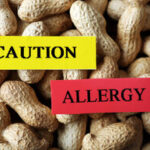Seasonal allergies, also known as Hay Fever, typically begin in February and last until the beginning of summer. Every year, millions of Americans suffer from seasonal allergies that include symptoms such as; watery and itchy eyes, sneezing, and runny or stuffy nose. These symptoms are a result of an increase in pollen count released by trees, grasses, flowering plants and weeds that irritate the nasal and oral passages.
If severe, it is suggested that you see an allergist as soon as possible in order to receive the proper diagnosis of what you are specifically allergic to and best regimen to treat.
There are some non-pharmacological strategies to reduce and control the symptoms of seasonal allergies. In general, it is advised that windows and doors stay closed to prevent allergens from entering the home as well as maintaining good hygiene by showering and changing clothes daily which is essential to reduce the amount of allergens present. Also, it is advised to avoid certain activities such as mowing the lawn and garden work. Rinsing out the sinus by using nasal irrigation kits such as Neilmed Sinus Rinse can also get rid of the bacteria lingering in the nose, which can cause itchiness and inflammation. Lastly, checking the pollen count in advance by listening to the weather forecast is vital when planning your outdoor activities.
Although there are several over the counter, non-prescription drugs in the pharmaceutical market, healthcare practitioners mostly prefer the use of Flonase, Zyrtec, or Xyzal. These drugs work by binding to the histamine receptors in the body and therefore blocking the ill effects of an allergic reaction. If you are currently taking other medications or have an underlying health illness, speak with your doctor or pharmacist before taking any medications. Please contact us with any questions.
This content was originally provided by Cindy Lau Pharm D Candidate 2020





